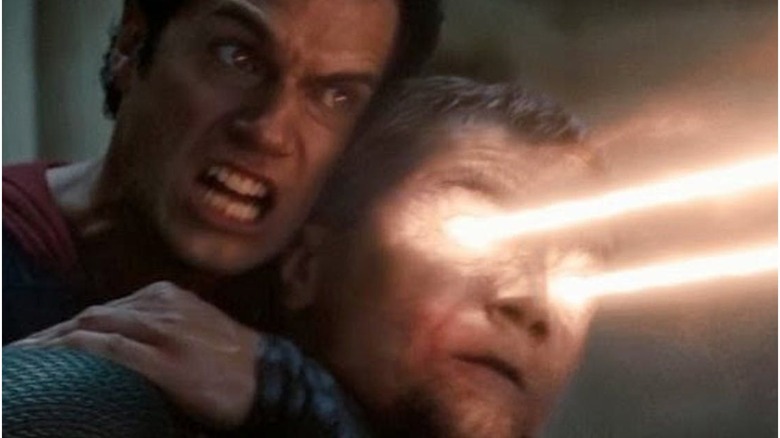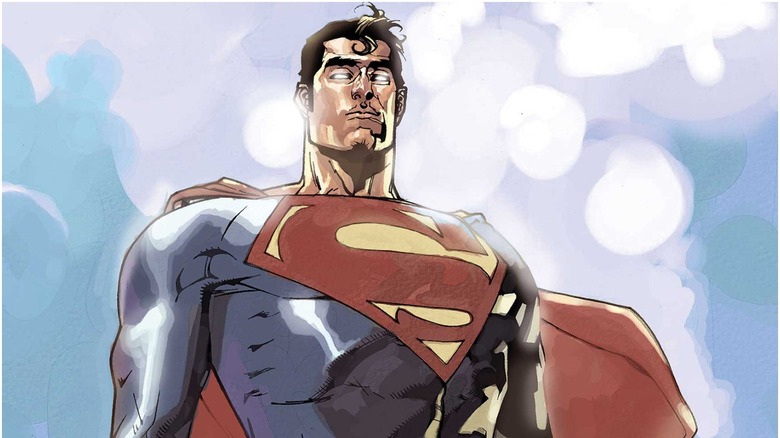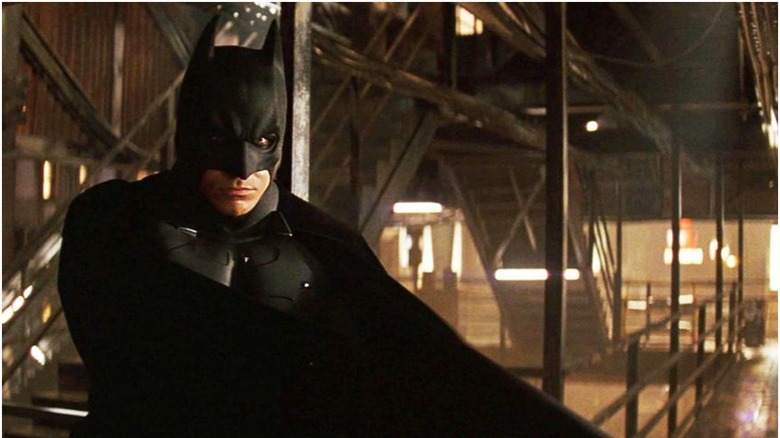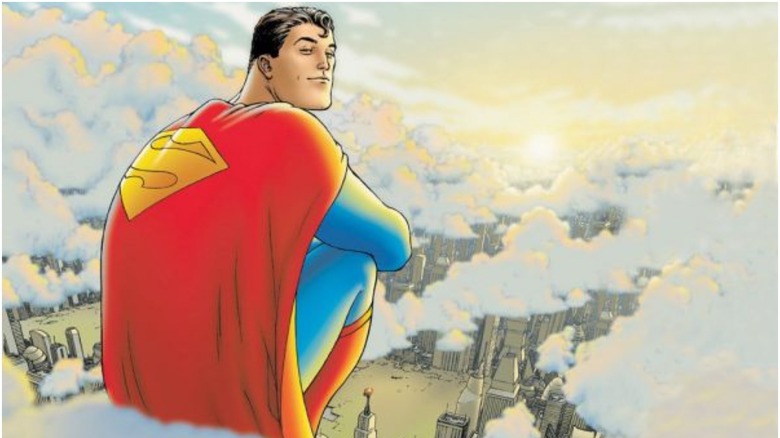Why Christopher Nolan Tried To Change Man Of Steel's Controversial Ending
"Man of Steel" has been overshadowed by its follow-ups, "Batman v Superman: Dawn of Justice" and "Justice League," but there was a time when Zack Snyder's Superman reboot was one of the most hotly controversial superhero films ever. One of the key points of discussion was the film's ending. Superman (Henry Cavill) kills Zod (Michael Shannon) by snapping his neck, after the Kryptonian general refuses to stand down from murdering a family with his heat vision. Before fans debated the moment, the production crew did the same — and one of the initial naysayers was none other than producer Christopher Nolan.
Background on "Man of Steel"
In 2008, WB began taking pitches for a new Superman film from comic writers and filmmakers alike. Mark Waid pitched an adaptation of his own "Superman: Birthright," which had reimagined Superman's origin for the 21st century. Grant Morrison's pitch was similarly in the vein of their acclaimed "All-Star Superman." Mark Millar and Matthew Vaughn went the most ambitious with their idea, expressing the desire to make an eight-hour epic chronicling Superman's entire life, from his birth on Krypton until he's the last living thing on Earth when the sun goes supernova.
None of these pitches went ahead, but in 2009, a court ruling gave the Jerry Siegel estate 50% of the rights to Superman's origins and his debut appearance, "Action Comics #1." Furthermore, if WB did not begin production on a new Superman film before 2011, the Siegel family could sue again for lost revenue. This kicked WB into overdrive — can't be fairly compensating the creators of characters who've brought them millions, after all!
Luckily for the money counters at WB, Christopher Nolan swooped in to the rescue. During production of the "The Dark Knight Rises," screenwriter David Goyer pitched Nolan a modern retelling of Superman. Nolan in turn pitched the idea to WB, and it was this pitch which provided the genesis for "Man of Steel."
How the ending took shape
Christopher Nolan's Batman films are an elusive high that WB has been chasing ever since. Their influence is obvious in "Man of Steel," and according to Goyer, his and Nolan's experiences on the "Dark Knight" trilogy shaped their work on the Superman movie.
Speaking to Empire, Goyer said, "You have to respect the canon, but constantly question the canon. If you don't reinvent these characters ... then they become stagnant and they cease being relevant. We were feeling — and I think a lot of people were feeling — that Superman was ceasing to be relevant." Goyer's solution was instead of Zod simply being thrown into the Phantom Zone, Superman would take his life.
In the same interview, Snyder added, "The 'Why?' of it for me was that if it was truly an origin story, his aversion to killing is unexplained ... I wanted to create a scenario where Superman, either he's going to see [Metropolis' citizens] chopped in half, or he's gotta do what he's gotta do." Nolan, however, was opposed: "[Chris] originally said, 'There's no way you can do this,'" Goyer explained. Nolan's own Batman films stress the importance of Batman's code against killing. But Nolan changed his mind when Goyer wrote the scene of Superman struggling to stop Zod from killing the family. "I wrote the scene, gave it to Chris, and he said, 'Okay, you've convinced me.'"
Superman experts weigh in
Grant Morrison questioned Snyder's reasoning behind the decision, telling USA Today: "I don't know about you, but the last moral decision I made didn't have anything to do with killing people. There is a certain demand for it, but I just keep wondering why people insist that this is the sort of thing we'd all do if we were in Superman's place and had to make the tough decision and we'd kill Zod. Would we? Very few of us have ever killed anything."
Morrison went so far as to pitch their own version of the ending: "Superman would have got Zod and flew him to the moon and punched the sh*t out of him on the moon. Superman thinks 'Zod's getting his powers from the sun, but he's only been here for a few weeks, he won't be that powerful. So it's basically my power against his.' That's what happens in my scene. Then he hits him to Mars. Then he hits him to Pluto. The two of them punching it out on the barren, black landscape of Pluto."
Morrison's own pitch would be out of place in a dark movie like "Man of Steel," but the goal of their writing has never been realism. Morrison is a fan of the Silver Age, when superheroes were at their goofiest and most aspirational. It's an era of comic storytelling that "Man of Steel" shouldn't have been so eager to forget.



